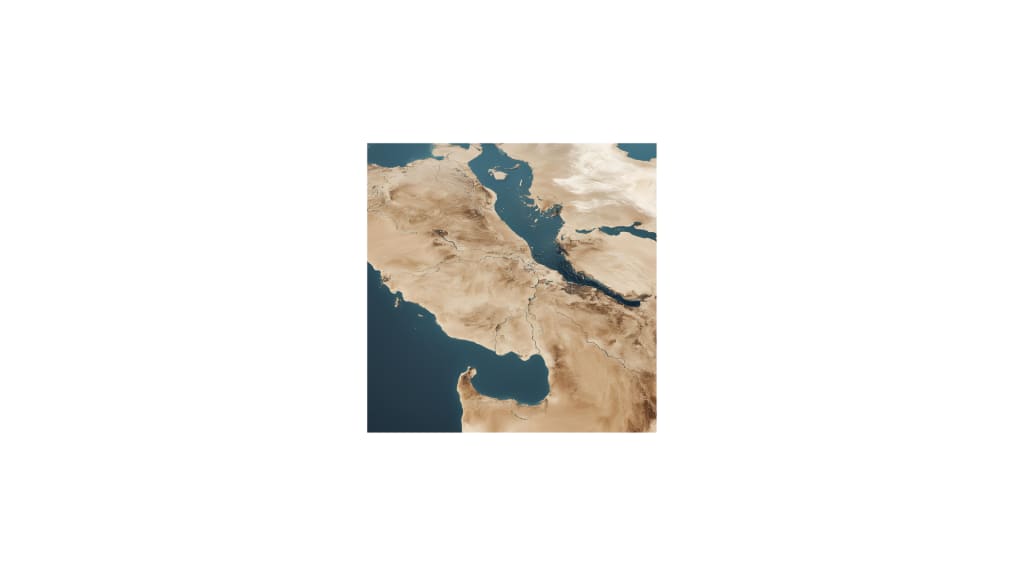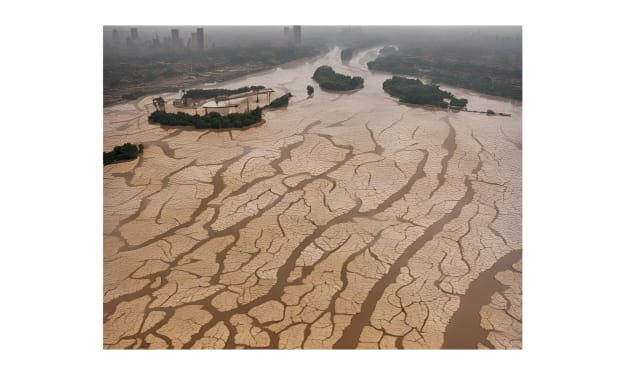Content warning
This story may contain sensitive material or discuss topics that some readers may find distressing. Reader discretion is advised. The views and opinions expressed in this story are those of the author and do not necessarily reflect the official policy or position of Vocal.
Global Water Scarcity: An Urgent Crisis
Ensuring Sustainable Water Resources for a Thirsty World

Global Water Scarcity: An Urgent Crisis
Water scarcity is emerging as one of the most pressing global issues today, affecting billions of people worldwide. This crisis is driven by a combination of factors, including population growth, climate change, poor water management, and pollution. The latest data from various international bodies highlight the severity of this problem and the urgent need for comprehensive strategies to ensure sustainable water use and management.
Scope and Scale of the Problem
Water scarcity is defined as the lack of sufficient available water resources to meet the demands of water usage within a region. Currently, more than 2 billion people live in countries experiencing high water stress, and this number is expected to grow as global populations increase and climate change exacerbates water shortages.
The Middle East and North Africa are the most water-scarce regions in the world, with many countries relying heavily on desalination and imported water to meet their needs. Sub-Saharan Africa and parts of Asia also face significant challenges, where inadequate infrastructure and governance issues compound the problem.
Causes of Water Scarcity
Population Growth: The global population is projected to reach 9.7 billion by 2050, increasing the demand for water for domestic, agricultural, and industrial use. Urbanization further strains water resources as cities expand and require more water for their growing populations.
Climate Change: Climate change is altering precipitation patterns, reducing snowpacks, and increasing the frequency and severity of droughts. Regions that depend on glacial meltwater, such as parts of South Asia and the Andes, are experiencing reduced water availability as glaciers shrink.
Poor Water Management: Inefficient water use, inadequate infrastructure, and lack of investment in water-saving technologies contribute significantly to water scarcity. In many regions, large amounts of water are lost due to leaks, inefficient irrigation practices, and outdated infrastructure.
Pollution: Industrial discharges, agricultural runoff, and untreated sewage pollute water bodies, rendering them unusable for drinking, irrigation, or industrial purposes. Contaminated water sources exacerbate the scarcity of clean, usable water.
Impacts of Water Scarcity
Water scarcity has far-reaching impacts on health, food security, economic development, and social stability.
Health: Lack of access to clean water and sanitation contributes to the spread of waterborne diseases such as cholera, dysentery, and typhoid. Millions of people, particularly in developing countries, suffer from these preventable diseases due to contaminated water sources.
Food Security: Agriculture accounts for about 70% of global freshwater use. Water scarcity limits agricultural productivity, leading to food shortages and increased prices. This situation threatens food security, particularly in regions where subsistence farming is prevalent.
Economic Development: Water scarcity hampers economic activities that depend on reliable water supplies, such as manufacturing, energy production, and tourism. Businesses face higher costs as they seek alternative water sources or invest in water-saving technologies.
Social Stability: Competition for scarce water resources can lead to conflicts within and between communities and countries. Water-related disputes are already evident in regions like the Nile Basin, the Jordan River, and Central Asia, where shared water bodies are a source of tension.
Solutions and Strategies
Addressing water scarcity requires a multifaceted approach involving technological innovation, policy reforms, and international cooperation.
Technological Solutions: Advancements in desalination, wastewater treatment, and water recycling can help increase the supply of usable water. Smart irrigation systems and drought-resistant crops can improve water use efficiency in agriculture.
Policy and Governance: Effective water management policies are essential. Governments need to invest in infrastructure, enforce regulations to prevent pollution, and promote water conservation practices. Integrated Water Resources Management (IWRM) approaches can help balance competing water needs.
International Cooperation: Transboundary water cooperation is crucial for shared water resources. International frameworks and agreements can help manage shared water bodies and prevent conflicts.
Public Awareness and Education: Raising awareness about the importance of water conservation and efficient use is vital. Education campaigns can encourage individuals and communities to adopt water-saving practices.
Conclusion
Water scarcity is a critical global issue that threatens health, food security, economic development, and social stability. Addressing this crisis requires urgent and sustained action at local, national, and international levels. By investing in technology, improving governance, and fostering international cooperation, we can work towards a sustainable future where water is available for all.
About the Creator
oliva egcol
I specialize in creating compelling content, from marketing copy and blog posts to social media captions.
Language Instruction
I teach Cebuano, Tagalog, and English without formal certificates but with practical experience.
Enjoyed the story? Support the Creator.
Subscribe for free to receive all their stories in your feed. You could also pledge your support or give them a one-off tip, letting them know you appreciate their work.






Comments (2)
thank you so much ,,
Truly informative about this devastation going on Earth. Yes, we should quit it. So this was an encouragement to rethink about it. I subscribed you 🥰to read your future works and if you wish you can subscribe me as well.